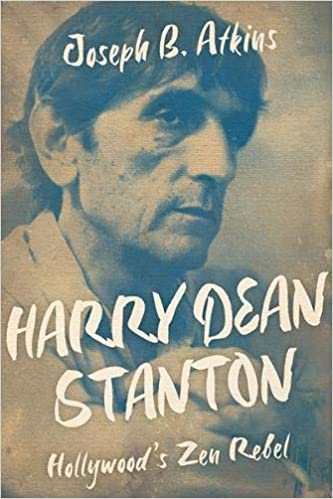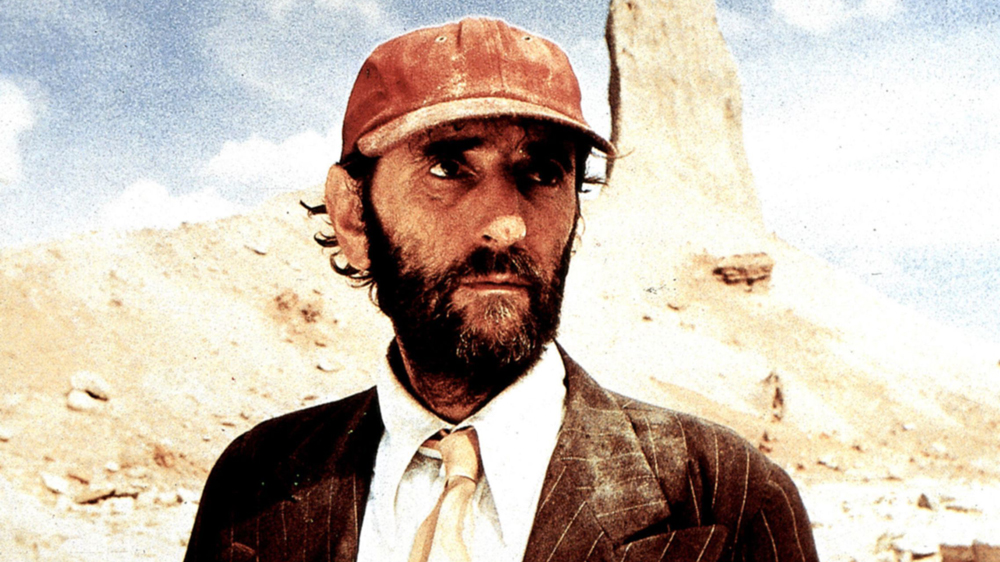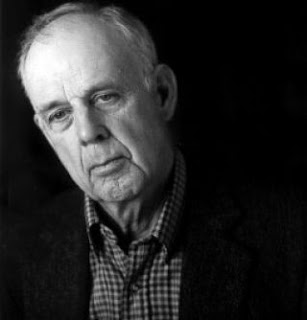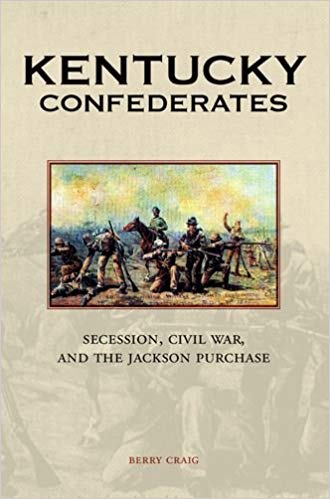Harry Dean Stanton in Paris, Texas.
Harry Dean Stanton: Hollywood’s Zen Rebel
By Joseph B. Atkins
University Press of Kentucky
Hardcover Biography
256 pages
$34.95
A review by Keith Waits
Entire contents are copyright © 2020 by Keith Waits. All rights reserved.
Kentuckians take a resolute pride in the legion of actors born here, particularly the generation of character actors that gained some recognition in the late 1960s and early 1970s: Ned Beatty, Warren Oates, and Harry Dean Stanton. Their work in film and television has been memorable but they are not the type that normally merits serious biographies. They were never movie stars.
Joseph B. Atkins has channeled what appears to be an intense interest in Hollywood history into the first well-researched biography of Harry Dean Stanton. From the opening pages wherein Mr. Atkins is running late to the recently deceased actor’s funeral, the author spins tales of a life drawn from a wealth of sources and many direct interviews conducted exclusively for this book.
Stanton is revered for the very qualities that frustrated his ambition; the soulful, hang-dog countenance and the low-key but resonant underplaying. As much as he wanted bigger, better parts and the chance to get the girl in a picture, he was destined to be a resourceful character actor (a term he despised) and, improbably, an icon for the new audiences who arrived in the age of punk rock and then grunge. His appearance in the low-budget cult classic Repo Man is credited with that status, and it is reinforced by appearances in more mainstream fare and the inevitable reappraisal of his long career – “Ok, look! That was Harry Dean Stanton in Cool Hand Luke, Alien, The Godfather, Part II…”
Of course, they may have still missed his best work in box office flops The Missouri Breaks (with old pal Jack Nicholson), Straight Time, Wise Blood, and Death Wish, not to mention the performance widely considered his career-best, Travis Henderson in Paris, Texas. Atkins devotes lengthy passages to the film, which was written by Sam Shephard with Stanton in mind, and directed by the German filmmaker Wim Wenders. Although well received in Europe, American reviews were uncertain and audiences stayed away but it has grown over time to be considered another cult classic and hands down Stanton’s most important film.
Atkins illuminates the troubled personal life of the actor; the estrangement from his mother, Ersel, the curious blend of irresponsible drinking, drugging, and gambling balanced against the deeply thoughtful and philosophical side of Stanton. Whatever experiences any of Stanton’s friends can claim, the observation of this zen Buddhist aspect seems consistent and honest from every direction.
Thankfully, there is a good deal of time spent exploring Stanton’s relationship to music and his own interest in singing. In his early years he spent time in choral groups, and on more than one occasion he was called on to sing in character on film, mostly gospel songs, which were a favorite of his, despite his outspoken rejection of organized religion. I was privileged to catch Stanton in a tiny Louisville club around 1988, touring an acoustic set with members of The Call, a band that had enjoyed some popularity in that period. At that time, not knowing his lifelong passion for music, it at first seemed like a novelty, but the sound of his emotionally expressive voice stays with me. I still have the tour shirt I purchased that night: “The Broken Lightbulb At The End Of The Hallway Of My Heart Tour”.
The author’s enthusiasm for his subject and attention to detail makes this a highly engaging and informative read without ever feeling over-studied. However, it also feels episodic, lacking a narrative flow and betraying the reality of writing such a book. Atkins undoubtedly came at the material through research and interviews that forced him to take on Stanton’s life in haphazard sequence, and it surely seems the job of a good editor to have cleaned up the clunky, redundant citations and bring clarity through modest rewrites.
Still, Mr. Atkins paints an honest, vivid portrait of the mercurial Harry Dean Stanton, and his book is a great service to cinephiles, plugging one of the holes in the history of a crucial time in American film and giving this remarkable actor the respect he so richly deserves.

Keith Waits is a native of Louisville who works at Louisville Visual Art during the days, including being the host of LVA’s Artebella On The Radio on WXOX 97.1 FM / ARTxFM.com, but spends most of his evenings indulging his taste for theatre, music and visual arts. His work has appeared in LEO Weekly, Pure Uncut Candy, TheatreLouisville, and Louisville Mojo. He is now Managing Editor for Arts-Louisville.com.





